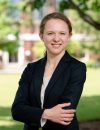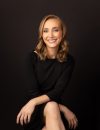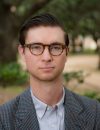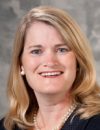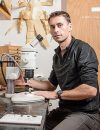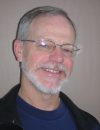UW In The News
-
How rising import prices could affect inflation
Not every type of import is raising a red flag right now. For instance, imports of industrial supplies, materials and other intermediate goods got more expensive. But those are just a small part of what goes into a finished product that a consumer buys, says Menzie Chinn, an economics professor at the University of Wisconsin-Madison.
-
The Six Most Amazing Discoveries We’ve Made by Exploring Venus
Sulfuric acid clouds circle the entire planet at a height of 25 to 37 miles above the surface. They contain tiny acidic aerosols that are about a hundred times thinner than human hair. Together the droplets resemble the air pollution in highly populated cities on Earth. “It’s like a haze that you find when you fly into, say, New Delhi or Beijing,” says Sanjay Limaye, a planetary scientist at the University of Wisconsin-Madison.
-
Is It Safe To Eat Moldy Cheese?
Some cheese varieties naturally have a moldy appearance, explained Mark Johnson, assistant director at the Center for Dairy Research at the University of Wisconsin-Madison. The blue veins in a wedge of gorgonzola or the white rind on a wheel of brie are examples of mold.
-
Some Americans say Valentine’s Day gifts are worth going into debt
“Everyone appreciates and remembers experiences more than ’stuff,’” said J. Michael Collins, professor of public affairs and human ecology at the University of Wisconsin. “There are lots of fun and memorable experiences that are not expensive, from moonlight walks to scavenger hunts to simple at-home dinners. Being creative can be better than bling.”
-
Monarch Butterfly Numbers Are Down Sharply at Wintering Areas in Mexico
It’s normal for insect population totals to swing up and down drastically, but drops become dangerous when they have been chronically eroded, as with monarchs, said Karen Oberhauser, professor emerita of entomology at the University of Wisconsin-Madison, who has studied monarchs for decades.
-
Why did the bank sell my mortgage?
“Some banks are good at originating, and they don’t have the capacity to hold these loans on their balance sheet,” said Anthony DeFusco, associate professor of finance at the University of Wisconsin-Madison. “And so it frees up resources for them if they sell your loan.”
-
A special milestone: UW-Madison celebrates 175 years on Founders’ Day
Founders’ Day celebrates the first day of classes at UW-Madison. On Feb. 5, 1849 twenty students gathered at UW’s temporary quarters near the Wisconsin State Capitol for the university’s first classes.
Now, Wisconsin Alumni Association chapters around the world host special Founders’ Day celebrations every year to commemorate this milestone.
-
Scientists have 3D bioprinted functioning human brain tissue
As detailed in the new issue of the journal Cell Stem Cell, University of Wisconsin-Madison researchers have developed a novel 3D-printing approach for creating cultures that grow and operate similar to brain tissue. While traditional 3D-printing involves layering “bio-ink” vertically like a cake, the team instead tasked their machine to print horizontally, as if playing dominoes.
-
Hurricanes becoming so strong that new category needed, study says
Michael Wehner, a scientist at the Lawrence Berkeley National Laboratory in the US, said that “192mph is probably faster than most Ferraris, it’s hard to even imagine”. He has proposed the new category 6 alongside another researcher, James Kossin of the University of Wisconsin-Madison. “Being caught in that sort of hurricane would be bad. Very bad.”
-
Putin’s Top Generals Have Gone Missing
Mikhail Troitskiy, professor of practice at the University of Wisconsin-Madison, told Newsweek via email on Friday that Russia’s relative silence is unsurprising considering the ongoing conflict and a lack of incentives to publicly disclose the whereabouts and/or deaths of top military commanders.
-
Capitol Hill lawmakers tell tech CEOs that they have failed to protect children
We called Dr. Megan Moreno to talk about this because she teaches medicine at the University of Wisconsin and she’s a co-medical director of a center at the American Academy of Pediatrics dedicated to social media and youth mental health. And she was at the White House yesterday to talk about kids’ online safety and health.
-
A pit of bones discovered under a castle could unlock key questions about what makes us human
John Hawks, a University of Wisconsin-Madison paleoanthropologist who studies ancient human relatives but was not involved in this research, said the study helps solidify the theory that patches of different human cultures were developing as Neanderthals neared their end.
-
Here’s the Happiness Research that Stands Up to Scrutiny
Such rigor is admirable, but it also means one can miss things, says Simon Goldberg, a psychologist at the University of Wisconsin-Madison. He studies the effects of meditation, including research among people who have psychological problems such as depression and anxiety. He noted that because of Dunn and Folk’s strict criteria, they omitted hundreds of studies on meditation’s benefits. “It’s, in the spirit of rigor, throwing lots of babies out with the bathwater,” he says. “It’s really very obvious that meditation training reduces symptoms of anxiety and depression.”
-
What are the symptoms of an enlarged prostate and how is it treated?
It’s a common result of aging, said Dr. Stephen Nakada, a University of Wisconsin urologist.
-
A high school wrestling evolution: Out with vomiting, in with hydration
These habits can only lead to negative physiological and mental effects and also can make wrestling more dangerous. A University of Wisconsin study, published in 2022 in the British Journal of Sports Medicine, followed 67 Division I college wrestlers over seven seasons and found that a 1 percent loss in body weight correlated with an 11 percent higher chance of injury during competition.
-
What’s driving a special education teacher shortage and how schools are responding
Special education teachers and administrators share how the shortage is affecting them, and John Yang speaks with Kimber Wilkerson, professor of special education at the University of Wisconsin-Madison, to learn more.
-
A rare fungal infection is popping up in an unexpected part of the U.S.
There are a number of things that could be happening, said Dr. Bruce Klein, a professor of pediatrics, medicine and medical microbiology and immunology at the University of Wisconsin-Madison. These pathogens can hitch a ride on shoes when people travel. New developments can stir soil — and the fungi they harbor — releasing spores into the air in places they weren’t thought to exist.
-
Opinion | A.I. Should Be a Tool, Not a Curse, for the Future of Work
Katherine Cramer, a University of Wisconsin-Madison political scientist, said that lower- and middle-wage workers have “pretty basic” expectations for the future of their work. “One man in Kentucky said, ‘I’m not looking for a mansion on a hill.’” What he and others want, Cramer said, is jobs that don’t destroy their humanity, that are meaningful and that give them time with their families. Many don’t feel they have that now. .
-
Dogs’ Favorite TV Revealed By Vets
Do you ever get the feeling that your dog likes some TV shows more than others? Well, new research from the University of Wisconsin–Madison’s School of Veterinary Medicine has found that they actually love watching things that feature other animals. And this could help veterinarians assess dogs’ vision.
“The method we currently use to assess vision in dogs is a very low bar. In humans, it would be equivalent to saying yes or no if a person was blind,” Freya Mowat, a veterinary ophthalmologist and professor in the School of Veterinary Medicine’s department of surgical sciences, said in a summary of the findings.
-
Naomi Osaka biography by Ben Rothenberg review
“A journey which I didn’t enjoy ultimately” is how Mari Osaka, who retired from tennis at age 24, describes her unsuccessful pursuit of what Rothenberg calls the “high-risk, high-reward dream of tennis glory.” Time will tell whether it’s a sentiment that Naomi will apply to her own career.
-Ashley Brown is the Allan H. Selig chair in the history of sport and society and an assistant professor of history at the University of Wisconsin at Madison. She is the author of “Serving Herself: The Life and Times of Althea Gibson.”
-
Why demand for Covid vaccines lags behind uptake of flu vaccines
The short-term side effects associated with the mRNA vaccines may also be contributing to reluctance. For some people, these vaccines are a breeze, but for others, a day or two of fever, aches, and chills are guaranteed to follow a booster. “We know from other vaccines that any mark in the ‘this is inconvenient for me’ column will suppress uptake,” said Malia Jones, an assistant professor of spatial dimensions of community health at the University of Wisconsin-Madison.
-
Washington takes aim at facial recognition
“It is crucial that governments make tackling these issues a priority,” said Jennifer Mnookin, the chancellor of the University of Wisconsin-Madison and a co-chair on the committee that wrote the report, in a statement. Otherwise, she said Washington would “effectively cede” policy on a key public issue to private companies.
-
Greenland ice sheet losing more ice than scientists estimated
The amount of freshwater from the edge calving is modest (42 gigatons per year) compared with total flow (about 221 gigatons per year), said Feng He, a polar scientist at researcher at the University of Wisconsin at Madison who was not involved in the study.
-
Crime in the US is once again falling. Can we rethink policing?
My hope for 2024 is that we start asking better questions about these systems, so that we can find better answers.
-Simon Balto is assistant professor of history at the University of Wisconsin. He is the author of Occupied Territory: Policing Black Chicago from Red Summer to Black Power
-
With mental health therapist shortage, could lay counselors fill in?
Bruce Wampold, emeritus professor of counseling psychology at the University of Wisconsin-Madison, has spent years studying the essential ingredients of therapy. Wampold points to a robust set of research indicating that more than the particulars of any method of treatment, it’s the relationship between therapist and patient that predicts outcomes.
-
As the U.S. shivers through a deep freeze, the world beyond is worryingly toasty
The idea is the jet stream — the upper air circulation that drives weather — is wavier in amplified global warming, said University of Wisconsin-Madison climate scientist Steve Vavrus. And those wave changes in the upper air knock the polar vortex out of its place and toward the United States, Cohen said.
-
Did a Young Democratic Activist in 1968 Pave the Way for Donald Trump?
“The rise of party activists is the theme of the last 20 years,” says Byron Shafer, a political scientist at the University of Wisconsin who wrote the definitive history of the 1968 reforms in Quiet Revolution: The Struggle for the Democratic Party and the Shaping of Post-Reform Politics. “And a lot of it does come from what happened back then.”
-
Vote to volunteer: Poll workers sorely needed this election year
About 1 million people typically step up to work the polls in a presidential election, said Barry Burden, director of the Elections Research Center at the University of Wisconsin-Madison.
-
This pristine lake has endured for 2m years. Why are its fish in crisis?
The tributary streams used by Hovsgol grayling for spawning are also drying up. “They no longer have water in them during the spring spawning season,” says Olaf Jensen, an associate professor at the University of Wisconsin-Madison. Nearly 80% of the 96 streams that once flowed into Lake Hovsgol are dry during the key months when the fish migrate.
-
The Rise of the N.F.L.’s 2-Point Conversion: A Guide to Strategy
A comprehensive analysis by FiveThirtyEight recommended going for two, especially late in the game, but a separate analysis by a University of Wisconsin-Madison professor, Laura Albert, concluded it’s best to kick the extra point. Even on similar questions, slightly different assumptions or data can lead to different answers.
- Newer stories
- Page 4 of 135
- Older stories
Featured Experts
Allison Daminger: Thank a hard-working mom this Mother's Day
Flowers for Mother’s Day make a nice gift, but lending a hand with housework might be even better. Despite improvements,… More
Shilagh Mirgain: When Mother's Day is difficult
Mother’s Day is quickly approaching, and many people are considering how best to show their appreciation for everything their mothers have done… More
Jessica Calarco: Institutions and inequality
Jessica Calarco, an associate professor of sociology, is an expert on inequalities in family life, education, and health decision-making, with… More
Max Besbris: Hurricane season begins
Hurricane season begins June 1. Max Besbris, associate professor of sociology, is available for interviews about the social and economic… More
Lee Wilke: New mammogram recommendations
According to new guidelines from the U.S. Preventive Services Taskforce, women should begin mammograms to screen for breast cancer at the… More
Kenneth Mayer: Trump hush-money trial
Kenneth Mayer, an expert on the American presidency and a professor of political science, is available for interviews about former… More
Patrick (PJ) Liesch: Cicada emergence
PJ Liesch is director of the UW–Madison Insect Diagnostic Lab. Liesch can discuss the emergence of periodical cicadas, cicada biology, the timing… More
William Brockliss: Cicadas in the art of the ancient world
William Brockliss is a classics professor in the College of Letters and Science. Brockless says the music of cicadas is embedded… More
Daniel Young: Cicada biology
Daniel Young is a professor of entomology and director of the UW–Madison Insect Research Collection. Young is an expert on insect… More
Kris Saha: AI-generated CRISPR arrives
A new paper recently announced the arrival of AI-generated CRISPR from a startup company called ProFluent. Kris Saha, biomedical engineering professor… More

